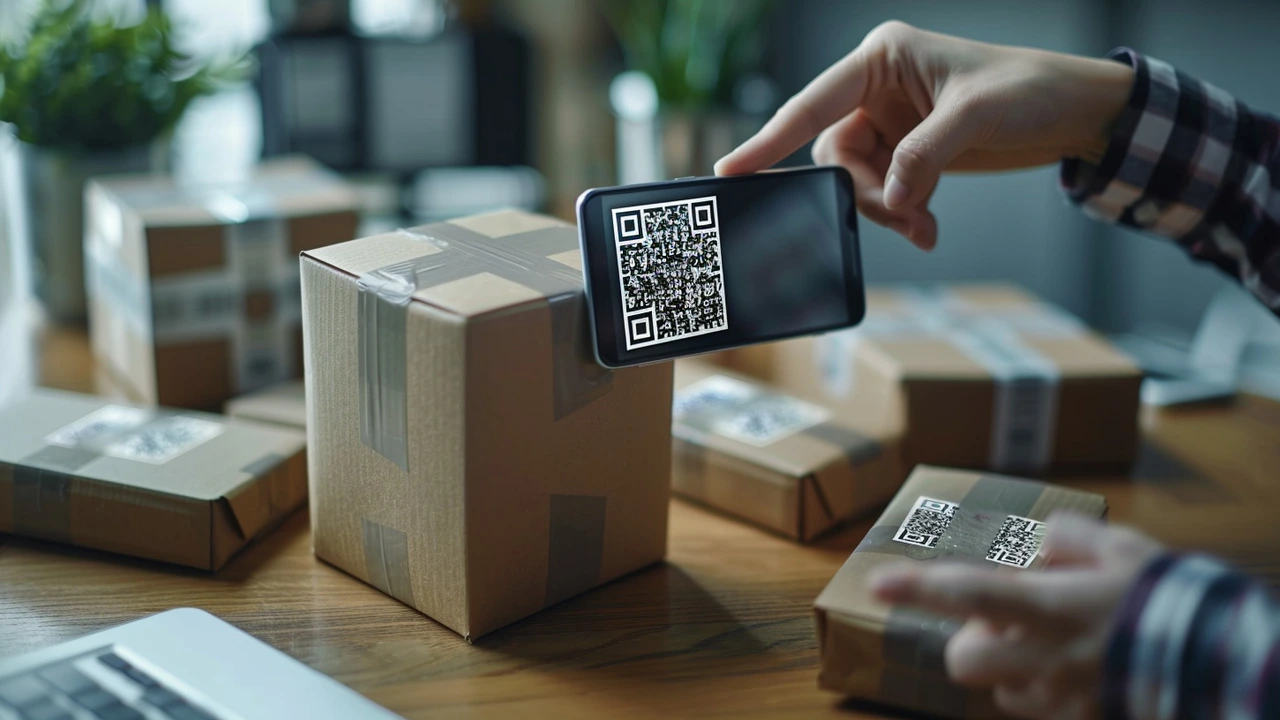Understanding the Influence of Brand Values on Consumer Decisions
Today's consumers are more particular than ever about the brands they support. Over 80% of shoppers expect brand values to mirror their own, influencing their loyalty and purchasing decisions. This growing trend has put considerable pressure on companies to not just promote, but embody values such as sustainability, ethical sourcing, and social responsibility. In an increasingly conscious market, brands failing to align with these consumer expectations risk losing their customer base. This alignment is not just a fleeting trend; it is a paradigm shift towards conscious consumerism.
As the focus on ethical and sustainable practices intensifies, consumers are ready to reward brands that demonstrate authenticity and commitment to positive change. According to recent studies, up to 70% of consumers would pay a premium for products that align with their values, highlighting the financial incentive for brands to adopt transparent practices. This is particularly resonant among younger, tech-savvy shoppers who use their smartphones extensively for product research and verification of brand claims.
The Role of 2D Barcodes in Modern Packaging
One effective method to communicate brand values and cultivate trust with consumers is through 2D barcodes like QR codes and Data Matrix codes on product packaging. These codes serve as gateways to a plethora of information that can substantially elevate brand engagement. The technology allows shoppers to instantly access detailed insights about a product’s sustainability, ethical sourcing, and social initiatives, which are critical to over 80% of today's consumers.
This approach is particularly compelling for brands targeting the younger demographic, who are accustomed to using their smartphones for various aspects of daily life including shopping. The integration of these codes into product packaging offers immediate, on-the-spot verification of a company’s commitment to the values it promotes. Essentially, it bridges the gap between consumer demand for transparency and the brand's efforts to offer it.

Smartphones: The Cornerstone of Modern Shopping
The ubiquitous use of smartphones has revolutionized the shopping experience. Nearly 87% of consumers use their smartphones to research products while they shop in-store, emphasizing the role of digital interactions in making purchase decisions. Through mobile technology, consumers can obtain immediate answers to critical questions about the products they wish to buy. Whether it’s understanding the environmental impact of a product or comprehensively evaluating a brand’s reputation, smartphones are central to the modern shopping experience.
For brands, this means that the point of sale is no longer just the physical space but extends to the digital. Incorporating 2D barcodes captures this hybrid model of shopping by enabling brands to communicate directly with their customers about what matters most to them. Codes on packaging can lead to websites, videos, or documents that elaborate on the brand’s initiatives, providing an interactive and engaging experience for consumers seeking authenticity and accountability.
Building Trust and Loyalty Through Transparency
Transparency is a cornerstone of building consumer trust. 2D barcodes provide an innovative and efficient way to showcase a brand's efforts in making a positive impact. Brands can incorporate these codes to detail facets of their production process, partnerships with ethical suppliers, or community initiatives. This transparency not only builds trust but also promotes consumer loyalty. When shoppers feel they can trust a brand, they are more likely to become repeat customers.
Addressing the consumer demand for transparency goes hand in hand with accountability. Brands need to routinely update the information accessible via 2D barcodes to ensure ongoing trust and relevance. It’s a continuous commitment that solidifies a brand’s position as a leader in ethical business practices. With nearly one in three consumers actively seeking out information on a brand's reputation and values, the importance of maintaining consistent, transparent communication cannot be overstated.

The Voice of Industry Experts
Randy Mercer, chief product officer at 1WorldSync, highlights the critical importance of brand values in modern consumer decision-making. According to Mercer, the alignment of brand and consumer values is more than an expectation; it’s a necessity. As consumers grow increasingly aware and concerned about their impact on the world, brands must rise to the occasion by showcasing their efforts toward sustainability and ethical practices.
Mercer emphasizes that technology like 2D barcodes not only meets the need for transparency but also enhances brand engagement. By providing consumers with easy access to detailed information, brands can foster a deeper connection and more meaningful interactions with their audience, leading to greater loyalty and advocacy.
The Future of Smart Packaging
As we move towards an even more interconnected world, the role of smart packaging will likely expand. The integration of 2D barcodes is just the beginning. Future innovations may include dynamic packaging that updates in real-time, offering the most current information about a product’s journey from production to shelf. This evolution will only enhance the capacity for brands to maintain transparency and trust with their consumers.
For brands looking to stay competitive and relevant, adopting and evolving with these technological advancements is imperative. The future consumer will demand ever greater transparency and will reward those brands that are willing to provide it. In embracing these innovations, brands not only meet current consumer expectations but set the stage for enduring loyalty and success in a value-driven market.
With the landscape of consumer expectations shifting towards sustainability and ethics, brands have a golden opportunity to lead with values. By integrating 2D barcodes into their packaging, they can effectively communicate their commitment to making a positive impact, thereby winning the trust and loyalty of conscious consumers.







5 Comments
Absolutely agree with the need for transparency.
Great points! QR codes are a game‑changer for brand storytelling 😊. They let shoppers instantly see a brand’s sustainability journey without digging through fine print.
Oh, what a groundbreaking revelation: consumers actually care about values. Who would have guessed that people might prefer a brand that doesn’t poison the planet? The statistics you cited sound like a dystopian novel written by a marketing department. Apparently, 80% of shoppers expect brands to mirror their morals – that’s practically a religion nowadays. And let’s not forget the 70% who’d gladly overpay for a product that’s ethically sourced, as if their wallets have a conscience. The younger generation, armed with smartphones, is apparently on a crusade to scan every QR code like a digital holy grail. You say QR codes are gateways – more like portals to a brand’s soul, if the soul were a PDF brochure. The idea that a barcode could replace genuine corporate accountability is, frankly, a bit… theatrical. We’re told that transparency builds trust, yet the very act of directing users to a website feels like a PR stunt. If a brand updates its QR‑linked content regularly, does that retroactively erase past misdeeds? The notion that a static piece of metadata could convey a dynamic ethical journey borders on magical realism. In a world where 87% of shoppers use phones in‑store, you’d think brands would focus on actual product quality, not just a digital breadcrumb. The promise of “smart packaging” sounds like a sci‑fi plot where the box tells you the carbon footprint of each atom. And while you claim this will secure loyalty, loyalty based on hyper‑convenient data streams might be as fragile as a glass QR code. In the end, perhaps the real strength lies not in the barcode, but in the brand daring to live the values it displays. Or maybe we’re all just scrolling through another layer of corporate theater.
Honestly, this whole QR hype feels like marketing fluff, but if it actually lets brands brag about green creds, who cares.
While I appreciate the enthusiasm for QR integration, we must recognize that a superficial overlay of data does not automatically equate to authentic ethical practice. The underlying supply chain complexities demand rigorous, third‑party verification far beyond a simple scan. Moreover, the consumer’s trust is a fragile commodity; presenting meticulously curated narratives without substantive action risks eroding that very trust you aim to build. Think of the QR code as a mirror, reflecting not only your brand’s aspirations but also its shortcomings, which will inevitably be exposed by vigilant stakeholders. Consequently, investing in genuine sustainability initiatives, accompanied by transparent reporting, should precede any technological embellishment. In short, let the code be a conduit for truth, not a veneer for illusion.